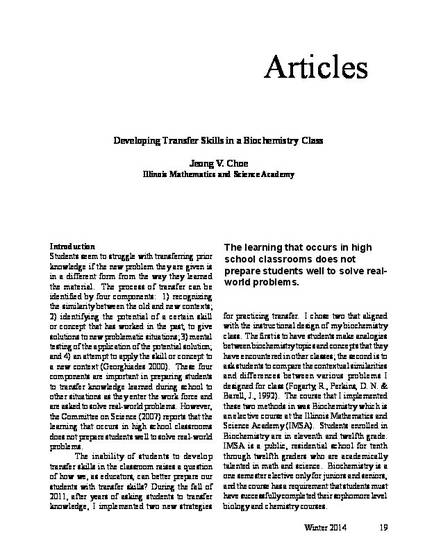
- biochemistry,
- transfer skills,
- teaching method,
- problem solving
Students seem to struggle with transferring prior knowledge if the new problem they are given is in a different form from the way they learned the material. The process of transfer can be identified by four components: 1) recognizing the similarity between the old and new contexts; 2) identifying the potential of a certain skill or concept that has worked in the past, to give solutions to new problematic situations; 3) mental testing of the application of the potential solution; and 4) an attempt to apply the skill or concept to a new context (Georghiades 2000). These four components are important in preparing students to transfer knowledge learned during school to other situations as they enter the work force and are asked to solve real-world problems. However, the Committee on Science (2007) reports that the learning that occurs in high school classrooms does not prepare students well to solve real-world problems.
